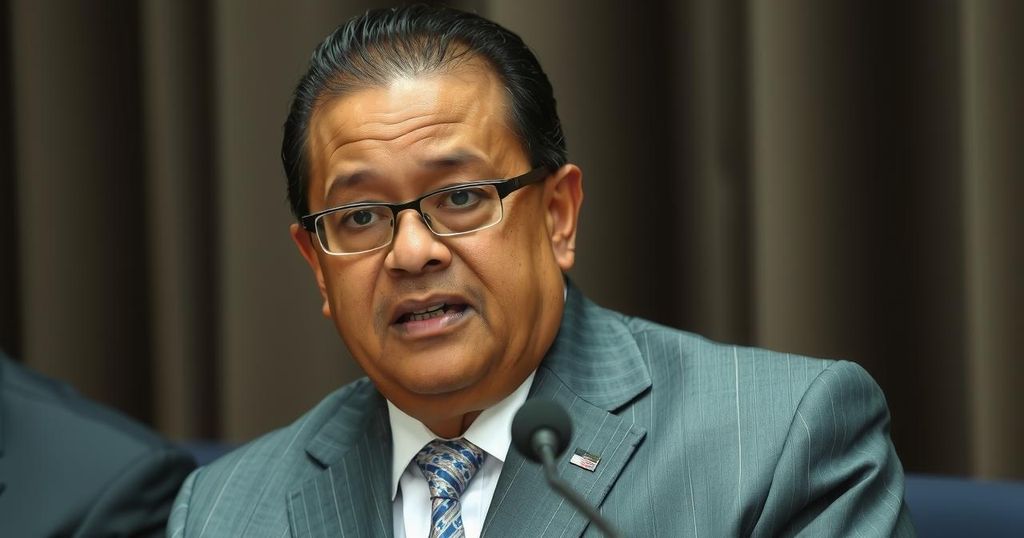Papua New Guinea’s Police Minister, Peter Tsiamalili, denounced cannibalism claims after graphic photos emerged on social media. The images stemmed from a violent incident involving two brothers, leading to the elder’s death. Tsiamalili stated that such barbaric acts do not define the nation and threaten its societal values. The Minister’s remarks highlight the ongoing battle against outdated stereotypes that often cloud perceptions of Papua New Guinea.
The Minister of Police for Papua New Guinea, Peter Tsiamalili, has vehemently denounced recent online allegations of cannibalism, describing the claims as “horrific” and asserting that such acts will not be representative of the nation. Gruesome photographs featuring men holding what appears to be a severed human foot, though not depicting actual cannibalistic acts, surfaced in the media recently, igniting public outrage. Minister Tsiamalili explained that a violent dispute between two brothers culminated in the tragic death of the elder sibling, further exacerbating the emotional toll on the community. He remarked that the actions of the individuals involved do not reflect the broader values of the Papua New Guinean people or their cultural heritage. Tsiamalili emphasized the need to reject these barbarous actions, which challenge the core societal principles that unify the country’s populace and undermine their shared humanity. The incident, traced back to the Goilala district, is a reminder of the outdated stereotypes that continue to afflict Papua New Guinea, despite its rich and complex cultural history.
Papua New Guinea, a country marked by its diverse cultural tapestry and complex history, has periodically faced stigmatization due to centuries-old perceptions of cannibalism among its indigenous tribes. While accounts of such practices have largely been confined to a few remote groups, contemporary narratives often revive these images, overshadowing the positive developments in the nation. Recent commentary by U.S. President Joe Biden referencing cannibalism in the region has reignited these misconceptions, prompting local leaders to assert the dignity and humanity of their people. Such incidents remind us of the importance of understanding and appreciating the cultural evolution of Papua New Guinea, moving beyond damaging stereotypes.
The condemnation by Minister Tsiamalili serves as a critical reminder of Papua New Guinea’s rejection of violence and barbarism that could tarnish its national identity. While the recent social media claims highlighted a specific incident of violence, it is essential to acknowledge that such occurrences are neither reflective of the people’s values nor representative of their history. Local leaders continue to advocate for a forward-looking narrative that emphasizes unity, shared humanity, and cultural respect.
Original Source: www.straitstimes.com






